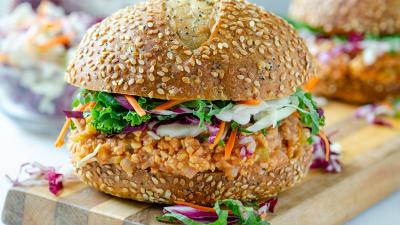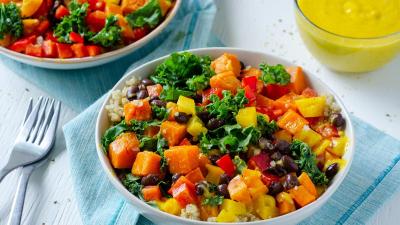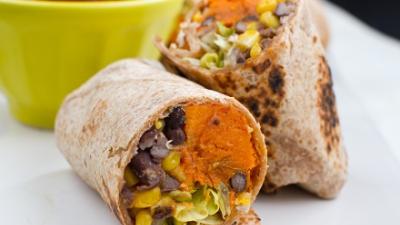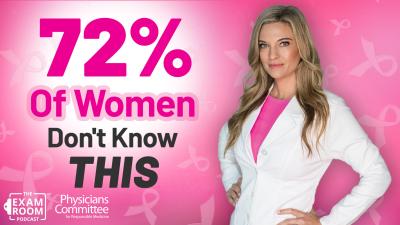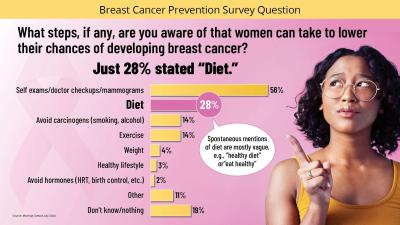Three Ways to Reduce Breast Cancer Risk
In 2010, my doctor found some suspicious spots in my left breast. A biopsy showed they weren’t cancer, but that I had a higher risk for cancer down the road. My doctor also found a “thickened” area in my right breast she wanted to keep an eye on.
I was only 30 years old, so that got my attention! I was determined to do everything I could to reduce my future risk. While no eating pattern gives 100 percent protection against cancer, I was impressed by research showing that plant-based diets cut cancer risk. I also took up exercise. And all was well for many months.
Then I fell off the wagon. It’s a long story, but I stopped exercising and went back to eating meat. And that "thickened" area they’d been following—which had been stable when I was plant-based. It doubled in size in just four months of eating meat.
Within a week, I was under the knife having a lumpectomy. The results came back “atypical,” or one step before cancer.
Needless to say, I got right back to eating a plant-based diet! I even went back to school to become a registered dietitian, having personally experienced the power of nutrition. It’s been four years since my last surgery, and so far all reports are clear.
While having breast issues was stressful, I’m grateful for the knowledge I’ve gained about reducing breast cancer risk, and I try to pass it along as useful tips for my family, friends, and patients. While research is still developing in the field of diet and disease prevention, this much I know for sure: Wearing a pink ribbon to raise awareness of breast cancer is good, but doing what we can to reduce our risk of getting the disease or having a recurrence is even better.
The World Health Organization has determined that dietary factors account for at least 30 percent of all cancers in Western countries and up to 20 percent in developing countries. The consumption of high-fat foods such as meat, dairy products, fried foods, and even vegetable oils causes a woman’s body to make more estrogens, which encourage cancer cell growth in the breast and other organs that are sensitive to female sex hormones. But taking these three steps can help you reduce your risk:
- Focus on Beta-Carotene
Beta-carotene, a type of carotenoid and cancer-fighting antioxidant, is a colorful pigment found in orange and red fruits and vegetables. The Institute of Medicine recommends women consume 3 to 6 milligrams of beta-carotene each day. Beta-carotene inhibits oxidation and protects the body from free radicals, which can damage the cells and lead to cancer and other chronic illnesses. - Eat Cruciferous Vegetables
Cruciferous vegetables—including arugula, Brussels sprouts, and cauliflower—are packed with phytochemicals called indoles and isothiocyanates, which may help reduce breast cancer risk by decreasing the production of “bad” estrogen (16-alpha-OHE) while increasing levels of “good” estrogen (2-OHE). - Try Meatless Mondays or Eliminating Meat
The high fat content of meat and dairy products increases hormone production, increasing the risk of hormone-related cancers such as breast and prostate cancer. Meat also contains animal protein, saturated fat, and, in some cases, carcinogenic compounds such as heterocyclic amines (HCA) and polycyclic aromatic hydrocarbons (PAH) formed during the processing or cooking of meat.

